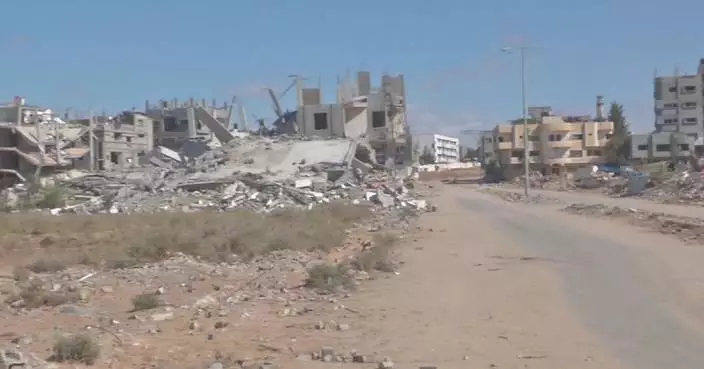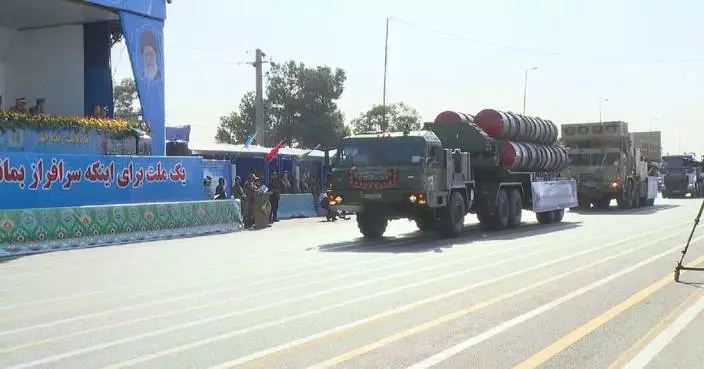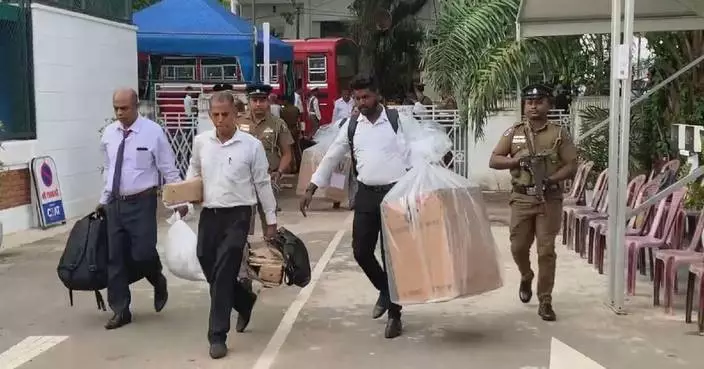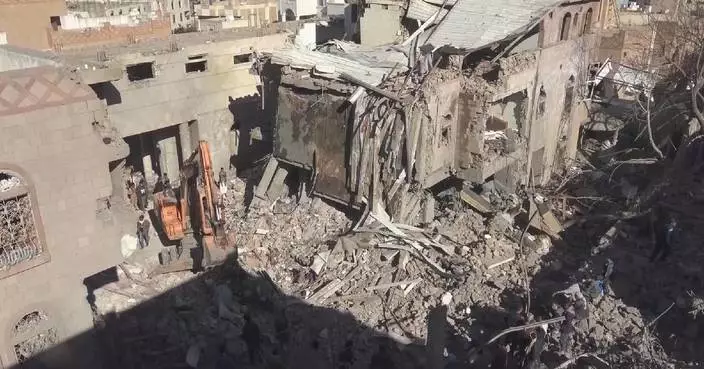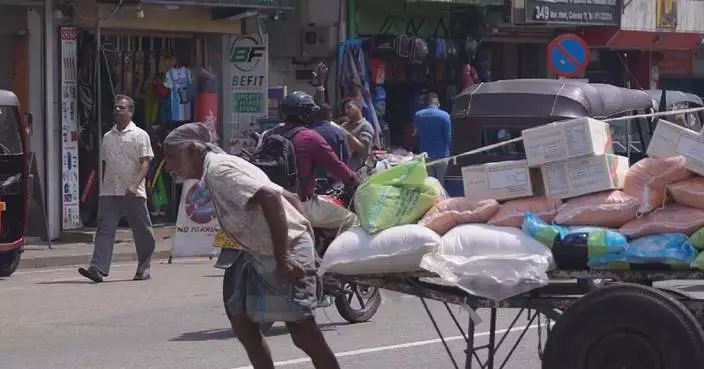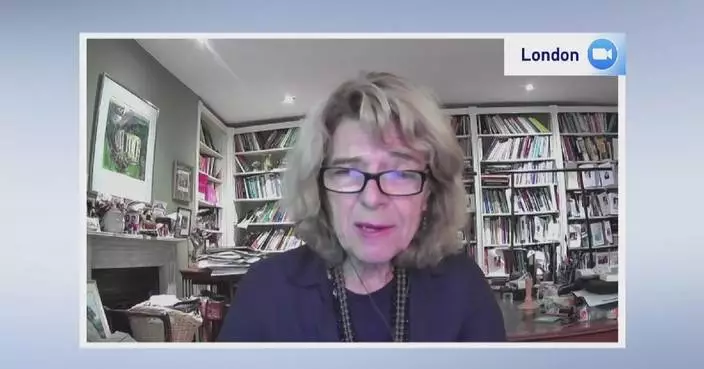Russia said on Saturday that its troops consolidated advantages on multiple fronts, while Ukraine said it struck Russian ammunition depots and airbase in the past day.
The Russian Defense Ministry said on Saturday that the Russian Armed Forces used high-precision weapons and drones to launch a group strike on energy facilities of Ukrainian defense companies, drone production sites and deployment points of Ukrainian troops and weaponry early in the morning.
The Russian Defense Ministry said that in the past day, Russian armed forces consolidated advantages on multiple fronts, repelled several counterattacks by Ukrainian forces, inflicted casualties on Ukrainian troops and destroyed Ukrainian army's weaponry including tanks, armored combat vehicles, and howitzers, while the Russian air defense forces downed 177 Ukrainian drones.
The General Staff of the Ukrainian Armed Forces said on Saturday that the Ukrainian army attacked Russian ammunition depots and radar stations in the Krasnodar Region and near the Tver Region.
Citing sources, Ukrainian national news agency Ukrinform reported on Saturday that the Security Service of Ukraine used drones to hit the Shaykovka military airbase in Russia's Kaluga Region, where TU-22M strategic aircraft are stationed.
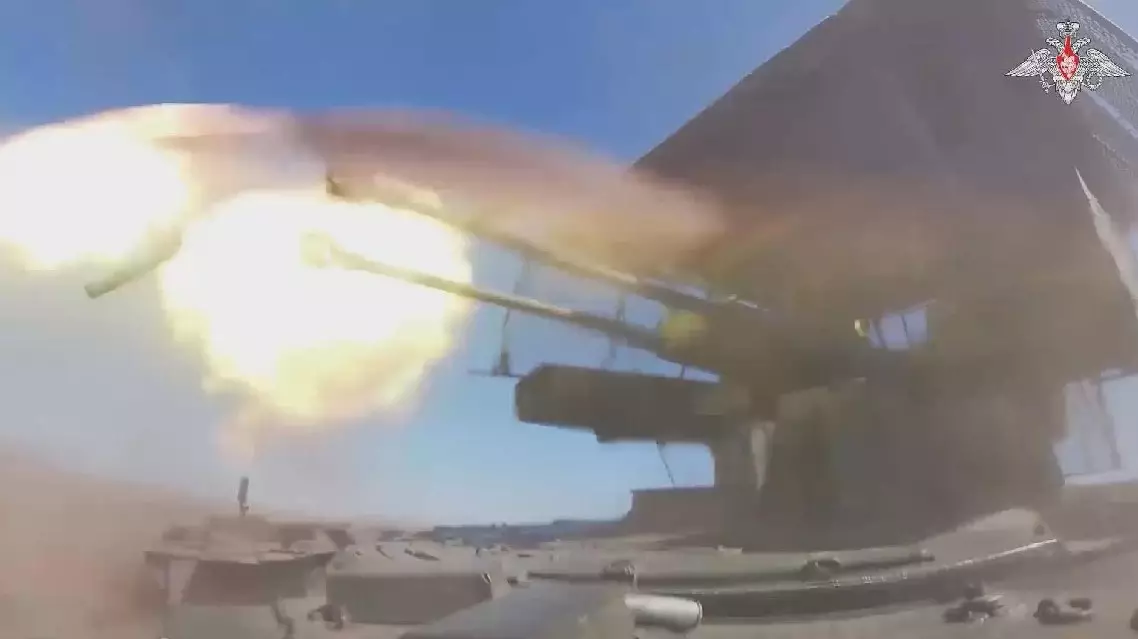
Russia consolidates advantages on multiple fronts, Ukraine strikes ammunition depots, airbase
Pistachio farmers in Syria are striving to revive their crops damaged by the civil war erupting 13 years ago, while facing sanctions implemented by Western countries.
Pistachios have once been one of the main export products of Syria. However, the pistachio industry has been severely damaged since the outbreak of the Syrian civil war in March 2011.
Before the war, Syria produced up to 80,000 tons of pistachio annually, a high number that has been sliced by half during the war, according to the country's Agriculture Ministry.
The Aleppo pistachio native to Syria, known in the Arab country as the "red gold" for its reddish shell and high prices, is planted mainly in the provinces of Hama and Idlib, which have been pounded the hardest by the war.
Many farmers have returned here after the situation has stabilized, but the agricultural production in the place is still hard to recover. Morek is a 35-year-old farmer living in the rural area between Hama and Idlib. His family were forced to fled from home by the war for six years and only returned last year. Their pistachio orchard was burned during the war.
"Some people sold their own land. For example, we once had a car, but we sold it to make a living," Morek said.
Before the war, pistachios produced here could be exported to the Gulf countries, bringing profits to the farmers, but they earned almost nothing last year, according to Morek.
"When we returned, we found that pistachio trees had died. So we cut them down and plant new ones. We are taking care of the diseased trees," he said. As farmers were displaced by war during the past decade, diseases and pests spread among the pistachio trees, according to the local Agricultural Bureau in Hama Province.
The Syrian government has taken measures to help farmers prevent tree decline since 2021. However, economic sanctions from Western countries restrict the import of fertilizers and pesticides, curbing agricultural recovery.
"We cannot obtain fertilizers and agricultural chemicals due to high prices," said head of the local Agricultural Bureau of Hama.
Moreover, irrigation cost is rising because of the domestic fuel shortage in Syria. Wheat production in Hama Province has dropped from three million tons before the war to just 110,000 tons today, according to the local Agricultural Bureau in Hama.
Restoring the agricultural production to pre-war levels still takes time.
Morek used the money from selling his car to install solar panels for irrigation, hoping to tide over the difficulties and revive the land.
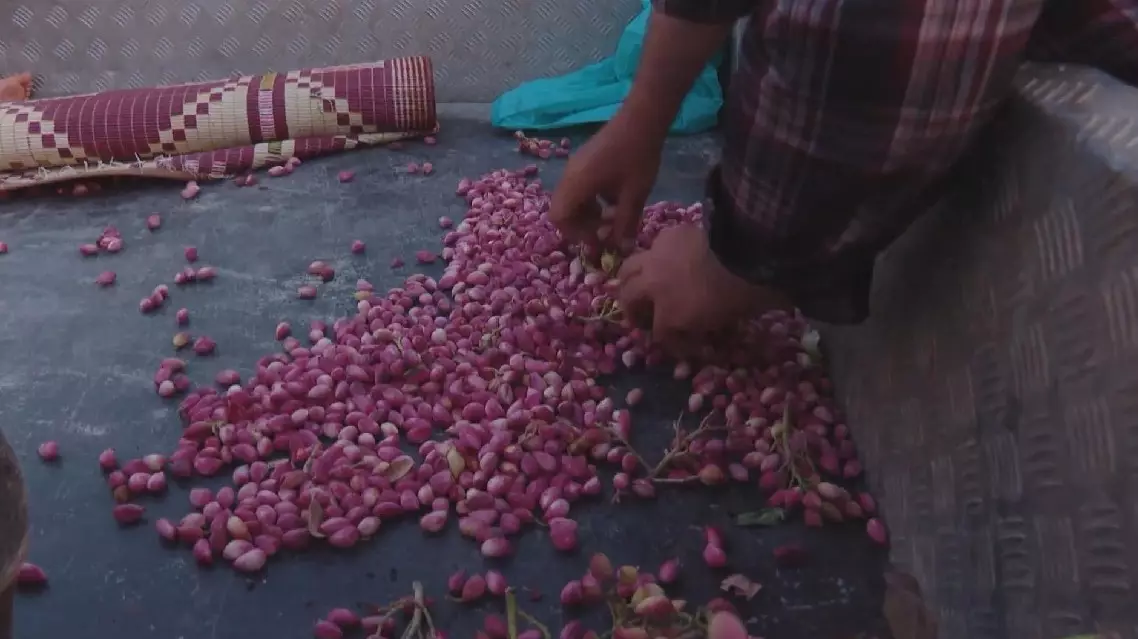
Syrian pistachio farmers battle war damage and sanctions to revive 'red gold' crops
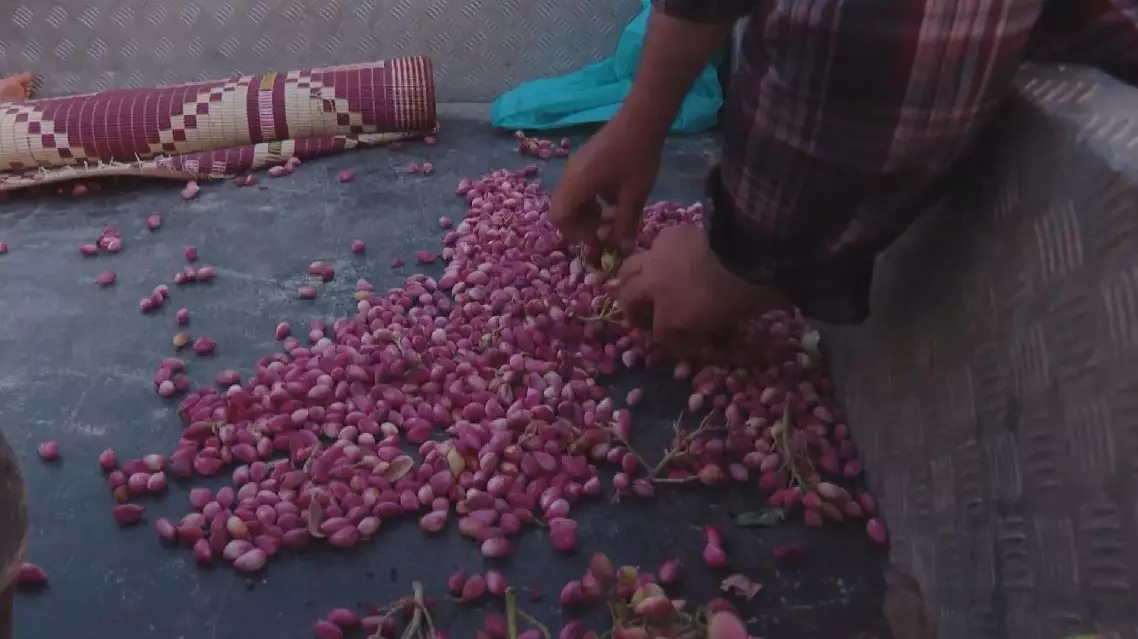
Syrian pistachio farmers battle war damage and sanctions to revive 'red gold' crops





